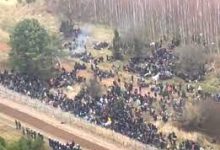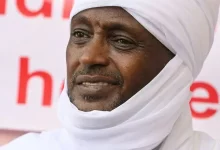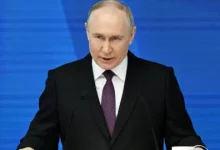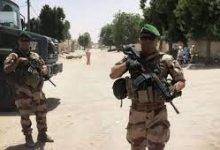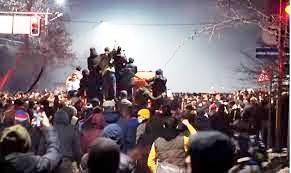
Kazakhstan’s government is restoring vehicle fuel price caps for six months after days of deadly unrest.
Petrol and diesel prices will also be capped for the same period.
The price of liquefied petroleum gas (LPG), a common car fuel in the Central Asian state, doubled when the limit was removed this week.
It comes after protesters took to the streets in Almaty, the largest city, and in the western province of Mangistau.
Though originally sparked by the fuel rise, the protests quickly broadened to include other political grievances.
Kazakhstan is often described as authoritarian, and most elections are won by the ruling party with nearly 100 per cent of the vote. There is no effective political opposition.
Analysts told the BBC these protests were not surprising in a country with no electoral democracy – where people need to take to the streets to be heard.
As the unrest escalated on Wednesday, the office of Almaty’s mayor and a presidential residence were set alight, Reuters news agency reports.
President Kassym-Jomart Tokayev claimed the unrest was the work of foreign-trained “terrorist gangs”, and appealed to a Russian-led military alliance – the Collective Security Treaty Organisation (CSTO) – for help in quelling the protests.
Russia is sending paratroopers to Kazakhstan, and said it would consult with the country and allies on ways to support the government’s “counter-terrorist operation”.
According to the CSTO, the troops are a peacekeeping force and will be deployed to protect state and military installations.
Neither Moscow nor President Tokayev provided evidence for the claim of overseas involvement in the protests.
Police in Kazakhstan said they had killed dozens of people described as rioters overnight when they moved to regain control in Almaty.
State television reported that 13 security officers had been killed – two of whom were decapitated – and 353 wounded in the unrest. The health ministry said that 1,000 people had been wounded overall.
Rights group Amnesty International called on Kazakhstan to end what it called its “repressive response”. Marie Struthers, the group’s Eastern Europe and Central Asia director, called the protests “a direct consequence of the authorities’ widespread repression of basic human rights”.
In a bid to subdue the protests, President Tokayev had earlier fired his powerful predecessor, Nursultan Nazarbayev, who held a national security role since stepping down as president, and the entire government also resigned. -Reuters

